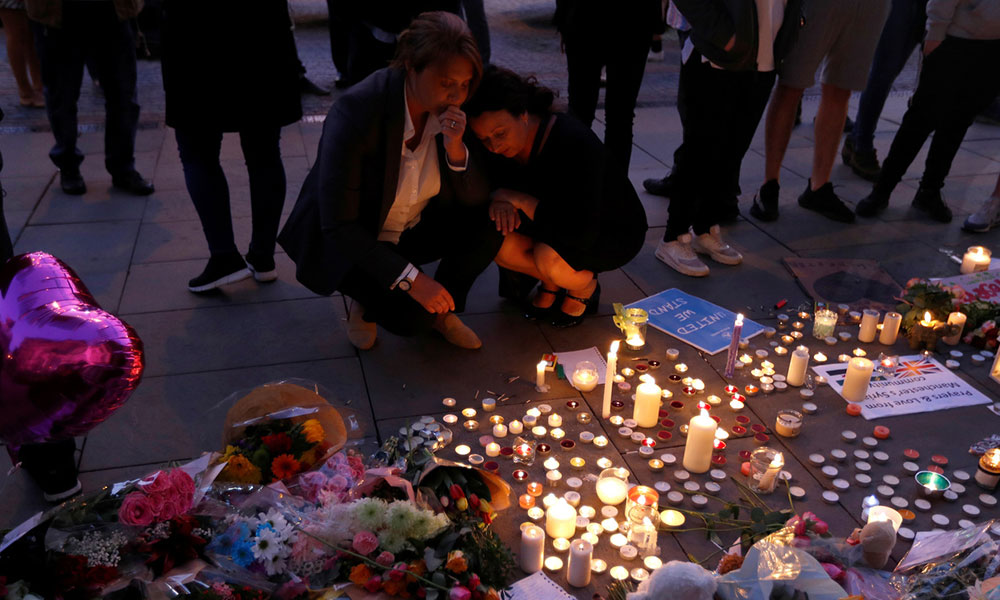
Event, Venue Groups Eye Security Focus After Manchester Attack
After a deadly bombing at an Ariana Grande concert took the lives of nearly two dozen people, event groups are pledging both to reinforce their safety strategies and sharing information with members, as the attack puts fresh attention on concert venue security.
This week’s attack on the Manchester Arena after an Ariana Grande concert has many in the live events industry carrying heavy hearts—as well as thinking about the security ramifications for events going forward.
The suicide blast at the U.K. venue, which killed 22 people, including children, was the deadliest terror attack on a concert venue since the 2015 shooting at the Bataclan in Paris.
While the attack drew comparisons to the Paris incident, Event Safety Alliance (ESA) Vice President Steven Adelman, who spoke to The New York Times, saw parallels with another high-profile event: the 2013 bombing at the Boston Marathon.
“It’s less like the Bataclan than it is the Boston Marathon bombing, which also took place on a public street, surrounded by law enforcement,” Adelman told the newspaper. “It was another target-rich environment for someone with bad intent.”
The Times piece spoke of large-scale entertainment venues as “soft” targets, due to their large scale and potential for vulnerability. Security at such events has become more prominent as a result.
ESA was one of many groups to respond to the incident, and did so by sharing a counterterrorism strategy document [PDF], targeted at touring crew members, from The Event Safety Shop.
Tim Roberts, an ESA board member and director of The Event Safety Shop, noted that he felt compelled to share the document in hopes of helping others in the industry.
“I don’t claim to be a counterterror professional, but we have been in the business of providing advice to productions, promoters, and others for many years—and as part of my own sense of duty, I feel I should try and push this agenda with people I know,” Roberts emphasized in a statement.
Other groups have also emphasized their dedication to assisting concert venues in the country and elsewhere.
The Association Of Independent Festivals, a trade group that supports organizers for outdoor events large and small, drew attention to its robust private security and ties to the law enforcement community, through information-sharing endeavors such as Operation Gothic and Project Argus.
“Security measures at festivals are reviewed constantly, and the top priority of festival and concert promoters is always the safety and security of audiences,” the group emphasized in a statement. “If additional measures need to be introduced at festivals, we are confident that they will be.”
UK Music CEO Michael Dugher, in comments to Billboard, echoed this sentiment. “We know venues take security very seriously and do all they can to minimize risks, including training staff how to deal with major incidents,” he said. “As a result of police investigations there will no doubt be a further review of these measures.”
And, according to Exhibition World, the European Arenas Association pledged to focus its training on the issues raised by the attack during its semiannual meeting, which is taking place next week in Paris.
“EAA will continue to take a leading role in educating its members on the newest technology and methods of securing our public sports and entertainment venues, and in protecting our tenants and guests,” the group stated.
Women pay their respects following a vigil in central Manchester. (Peter Nicholls/Reuters)






Comments